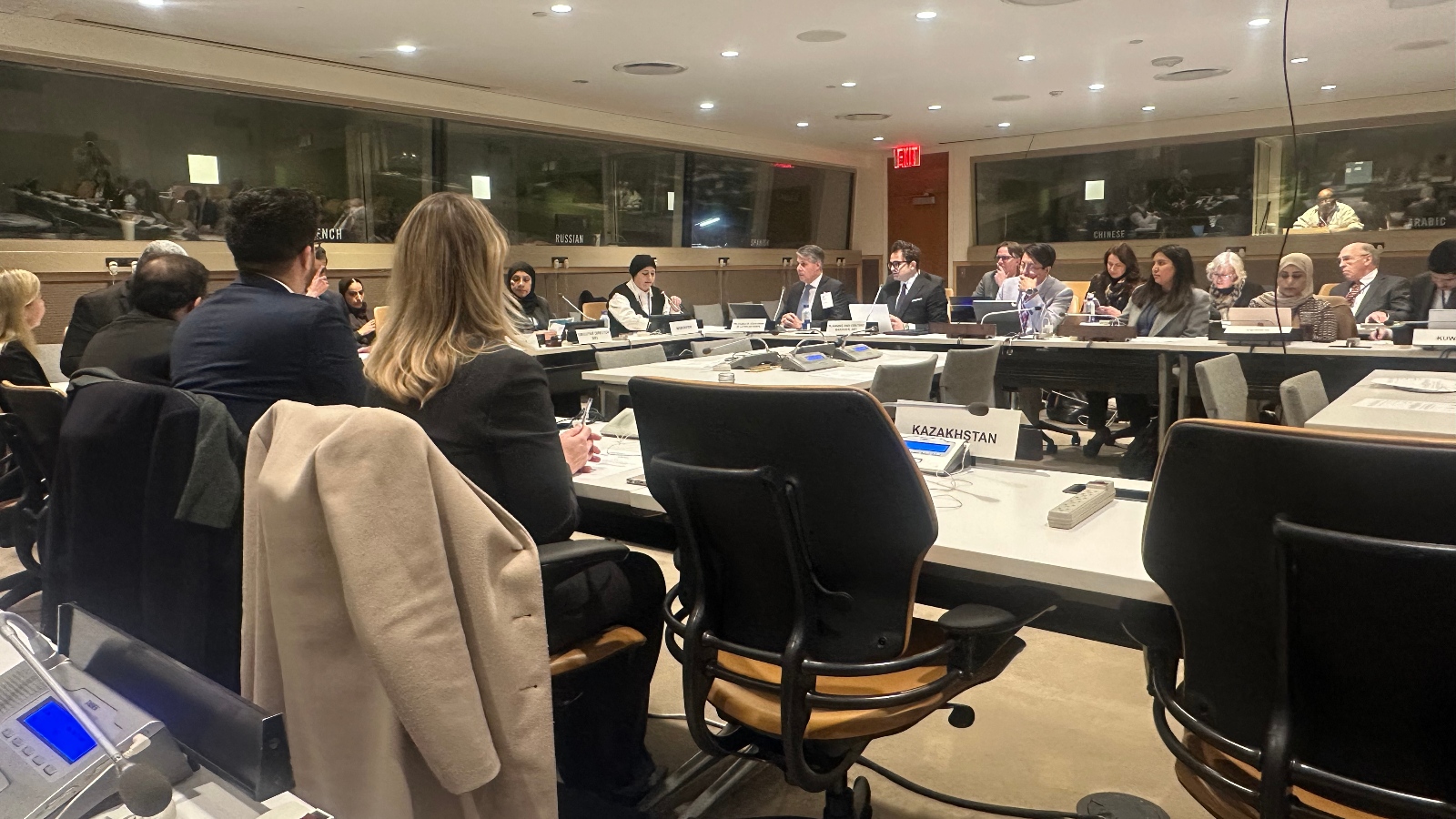
On 10 February 2024, the Permanent Mission of the State of Qatar to the United Nations, in collaboration with the UN Department of Economic and Social Affairs (UN DESA), the Doha International Family Institute (DIFI), and the International Federation for Family Development (IFFD), hosted the side event “From Commemoration to Action: The IYF+30 Way Forward” at the 63rd Session of the Commission for Social Development (CSocD63). This discussion aimed to advance the global conversation on family-oriented policies following the 30th Anniversary of the International Year of the Family (IYF+30).
A global initiative for family-centered policies
The session built upon the outcomes of the 2024 International Conference on “Family and Contemporary Megatrends”, which brought together over 2,500 policymakers, scholars, and practitioners to highlight the role of families as the fundamental unit of society. A key milestone of the conference was the Doha Call to Action, which outlined evidence-based recommendations to strengthen family policies worldwide. At CSocD63, the side event focused on progress made, challenges families have faced in the last decade, and the next steps in implementing the Doha Call to Action recommendations.
Key discussions
HE Ambassador Alya Al Thani, Permanent Representative of the State of Qatar to the UN, opened the event by reaffirming the importance of placing families at the core of sustainable development policies. She emphasized how family-friendly policies contribute to poverty eradication and social inclusion, aligning with the CSocD63 priority theme.
Mr Charles Katoanga, the Director of the Division for Inclusive Social Development (DISD), provided an overview of UN DESA’s work on family policies. He outlined ongoing research and initiatives, including a comprehensive review of Voluntary National Reports (VNRs) from 2020 to 2024 to assess the role of family policies in achieving SDG targets. The findings are set to be officially launched on 15 May 2025, marking a significant step in integrating family-focused strategies into global development efforts.
Dr Sharifa Noaman Al Emadi, Executive Director of DIFI, stressed that the advocacy for family empowerment does not end with the 30th anniversary of IYF. Instead, this milestone serves as a launchpad for continued efforts to ensure that families remain central to policymaking and sustainable development goals.
The session also featured expert insights on four megatrends impacting families:
-
Technology and families – Addressing the opportunities and risks of digital transformation.
-
Demographic changes – Examining the implications of shifting population dynamics on family structures.
-
Urbanization and migration – Understanding how mobility trends affect family cohesion.
-
Climate change and families – Exploring how environmental challenges impact family stability and resilience.
Looking ahead: implementing the Doha Call to Action
Speakers, including representatives from Qatar’s Ministry of Social Development and Family, the Duke Center for Child and Family Policy, and international organizations, emphasized the need for concrete steps toward policy implementation. Dr Ahmed Aref, Planning and Content Manager at DIFI, detailed regional consultations held in Cairo, Mexico City, Kuala Lumpur, and other locations, where experts and civil society organizations identified regional priorities for family-oriented policies.
The discussion underscored that the next phase of the Doha Call to Action will focus on regional engagement and dedicated policy forums, ensuring that family-friendly policies remain a priority in social development frameworks worldwide. Stakeholders are encouraged to collaborate, innovate, and integrate family-focused strategies into national and international policymaking.
Through this session, Qatar and its partners reaffirmed their commitment to advancing family policies as a cornerstone of sustainable development, advocating for inclusive, evidence-based, and forward-thinking solutions to strengthen families globally.
Source: UN DESA
 Welcome to the United Nations
Welcome to the United Nations